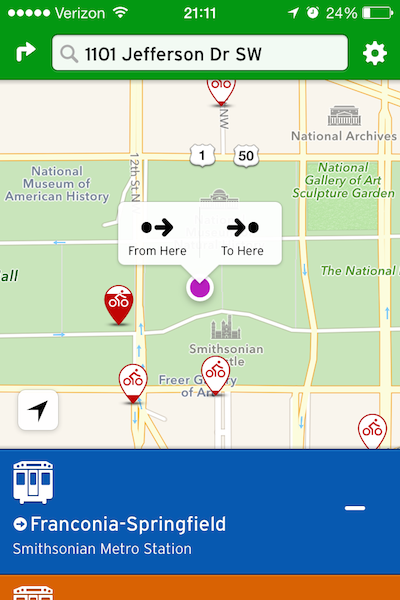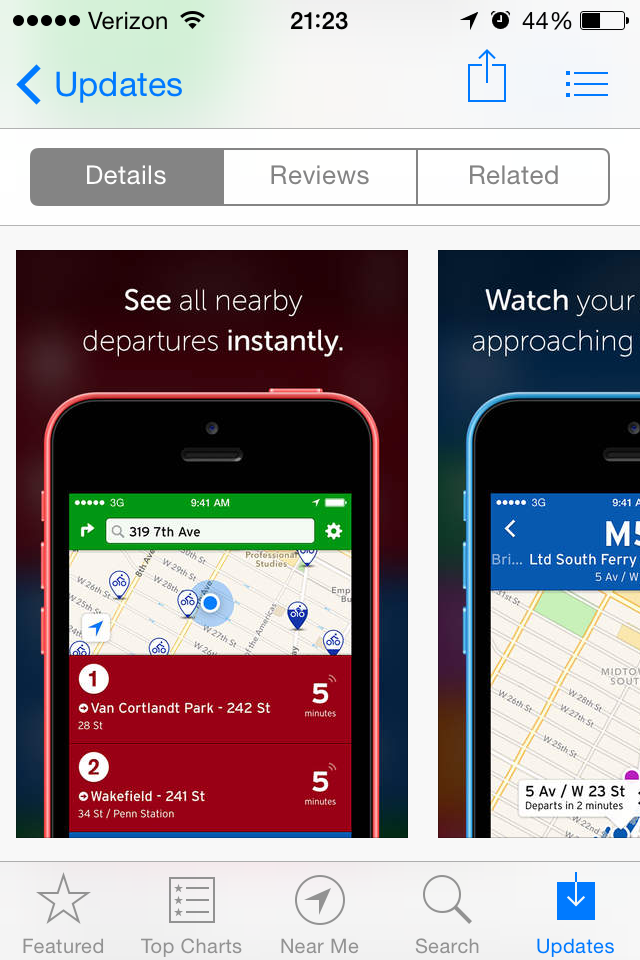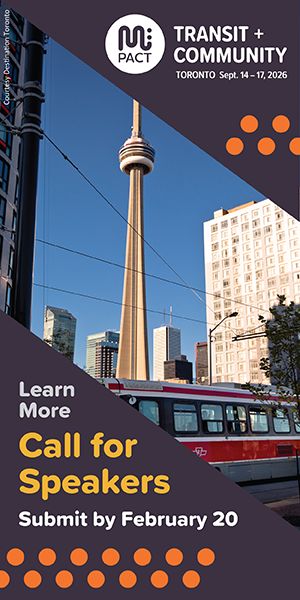
We’re big fans of The Transit App because of its universality and dynamic form, and previously wrote about the big version 3.0 release. Last week, The Transit App pushed out a major update (version 3.1) of their app for iOS users. The update contains two changes: the integration of bikeshare data in select cities and a general user interface revision to the main screen (split incorporation of the movable map and bus arrival information).
 The main screen is an elegant change. Users can now easily see both and realtime arrival of local buses. A simple gesture between the two will either make the screen go all map or all bus times. This removes the extra tapping required in the previous app version to toggle between screens. The map changes also mean minor adjustments in trip planning and dropping pins. The search bar at the top is now universal so that you can both locations and transit lines without evening having to find the nearest transit line in proximity to you.
The main screen is an elegant change. Users can now easily see both and realtime arrival of local buses. A simple gesture between the two will either make the screen go all map or all bus times. This removes the extra tapping required in the previous app version to toggle between screens. The map changes also mean minor adjustments in trip planning and dropping pins. The search bar at the top is now universal so that you can both locations and transit lines without evening having to find the nearest transit line in proximity to you.
Meanwhile, the other big change in the app is the incorporation of bikeshare. If bikeshare is a supported feature, it will show up right in the movable map. Icons appear showing how full a particular docking station is, and tapping on it reveals the number of bikes available and the total number of docks at the station. Cities currently supported for bikeshare include: New York City, Chicago, Boston, Montreal, Toronto, Washington, DC, San Francisco, Miami, Minneapolis, Columbus, Paris, Toulouse, Strasbourg, and Rennes. The Transit App plans to support additional cities for the bikeshare feature in the future, and we would suspect that those cities will be where transit data is already available through the app. In other words, we hope to be seeing Seattle’s Pronto! included down the road. (Of course, it always helps to let them know what cities and services to include.)
Stephen is a professional urban planner in Puget Sound with a passion for sustainable, livable, and diverse cities. He is especially interested in how policies, regulations, and programs can promote positive outcomes for communities. With stints in great cities like Bellingham and Cork, Stephen currently lives in Seattle. He primarily covers land use and transportation issues and has been with The Urbanist since 2014.




